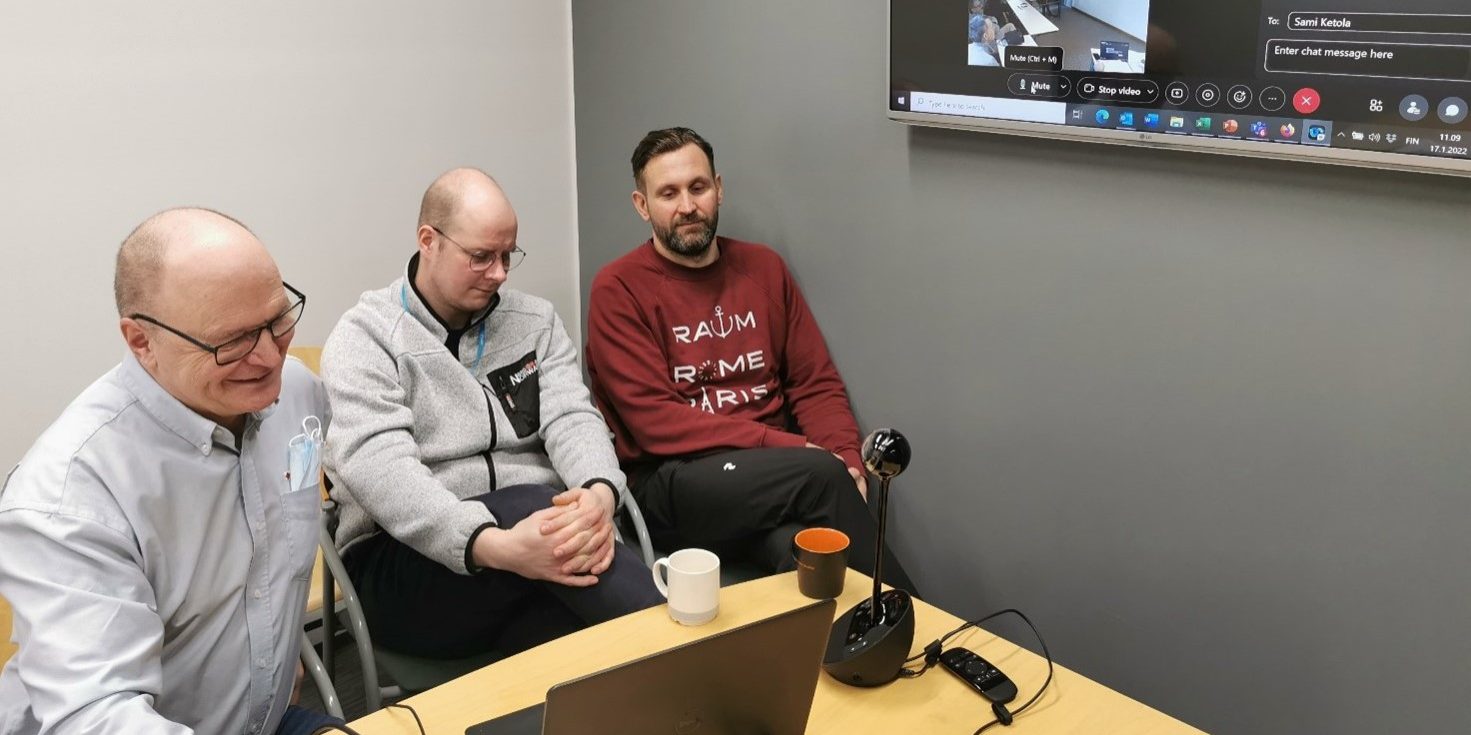We research: Online studies for marine engineers
Simulators form an increasing part of maritime studies. Theoretical studies are put into practice in simulators, where 30 days of supervised training can be carried out on both deck and engine sides. The Maritime Logistics Research Center is cooperating at European level in the training of engineers, which can be partly carried out in an online environment.

Due to the Covid-19 pandemic, an extra call for Erasmus+ funding for autumn 2020 was launched as part of the measures to support the recovery of the European Union. In higher education, the focus of the call was on innovative practices of the digital age. Despite the short application time, 44 applications were submitted in this round, a record number for the whole Erasmus+ period for strategic partnerships in higher education. Finland also scored among the best in a European comparison.
Eight projects were selected for funding, with an approval rate of 18% and a total grant amount of €2 062 363. The projects mainly focus on enhancing European cooperation.
Among the beneficiaries is the MERSol project (Maritime Engine Room Simulator on-line), managed by the Satakunta University of Applied Sciences. The project will jointly produce engineer training in an on-line environment with six partners. In addition to Imagesoft Suomi simulator manufacturer, Spinaker Slovenia online material specialist and SAMK, the project includes engineer trainers from Lithuania (Lithuanian Maritime Academy - LMA), Spain (Universitat Politècnica de Catalunya - UPC), Turkey (Piri Reis Üniversitesi) and Ukraine (Kherson State Maritime Academy - KSMA). In addition to the training itself, the project will develop an online computer simulator, produce learning modules for the Moodle platform, and develop guidelines for a possible similar project in related fields.
The study modules will serve as teaching material for new students and each module will be followed by a specific assessment module, including multiple choice questions on the module topic. Currently, the first module, air conditioning, has already been moved to the Moodle platform and after a consultation round, any suggestions for improvement will be discussed. The other seven modules will be produced in the same format. The engine simulation software has already been installed on the SAMK server and the first logins have been made.
The modules produced can also be used to improve shipboard knowledge and for in-service training, both on deck and on the engine side. The engine room simulation will be made available at the end of the project in spring 2023. The partners will eventually deliver 10 simulator exercises. The IMO model course Engine Room Simulator 2.07 was utilized in the preparation of the exercises. A do's/don'ts will also be collected in a guide for related sectors possibly taking up a similar kind of project.
Did you know?
- There was less than two months for putting together an Erasmus+ project consortium and write an application, but according to a release from the financier, they received a record number of applications in this special call.
- The Russian invasion of Ukraine disrupted the online work, as the MerSol Ukrainian partner in Kherson had to hand over the main building of the maritime school to Russian soldiers. The Russians disrupted internet connections, so the partner's representatives participated in meetings by phone. Despite the war situation, we were able to schedule the Ukrainian modules for review. There were occasional emotional moments during the online meetings when we received real-time updates from Kherson.
